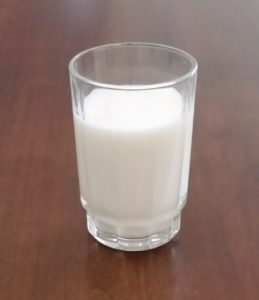 There appears to be a big downside to an all plant diet, which is the possibility of missing essential nutrients that are found in dairy and meat (e.g., vitamin B12, vitamin D3, iron, zinc, choline).
There appears to be a big downside to an all plant diet, which is the possibility of missing essential nutrients that are found in dairy and meat (e.g., vitamin B12, vitamin D3, iron, zinc, choline).
This is especially worrisome if a woman is pregnant (developing baby) and also in children (developing body and brain). Nutrient status is important both before conception and during pregnancy for both a healthy pregnancy and baby.
 A recent study looking at vitamin status in women both before conception and during pregnancy in 3 high-income countries found that over 90% of the women had marginal or low concentrations of 1 or more important nutrients: folate (folic acid), riboflavin, vitamin B12, or vitamin D before conception, and many developed vitamin B6 deficiency in late pregnancy.
A recent study looking at vitamin status in women both before conception and during pregnancy in 3 high-income countries found that over 90% of the women had marginal or low concentrations of 1 or more important nutrients: folate (folic acid), riboflavin, vitamin B12, or vitamin D before conception, and many developed vitamin B6 deficiency in late pregnancy.
All women took vitamin supplements containing folic acid, beta-carotene, iron, calcium, and iodine during pregnancy. However, one group took supplements that additionally had riboflavin, vitamins B6, B12, and D, zinc. The researchers found that the group with additional vitamins had higher (better) levels of the nutrients throughout pregnancy.
The study results show that multivitamins should already be taken during the preconception period. Multivitamins should be continued after pregnancy while breastfeeding a baby to maintain adequate levels of essential nutrients.
From Science Daily: Pregnant women are missing vital nutrients needed for them and their babies
Pregnant women are not getting the essential nutrients they and their babies need from modern diets say scientists, who have warned that the situation will likely worsen as more people turn to plant-based foods.
A study looking at the health of expecting mothers from high-income countries, including the UK, New Zealand and Singapore, found that 90 per cent were lacking key vitamins necessary for healthy pregnancies and the wellbeing of unborn infants.
Scientists from the University of Southampton, working with experts worldwide, surveyed more than 1,700 women and found most were missing essential nutrients found in abundance in meat and dairy products.
These included vitamins B12, B6 and D, folic acid and riboflavin which are essential for the development of fetuses in the womb.
Lead author and Professor of Epidemiology Keith Godfrey, from the University of Southampton, said the prevalence of vitamin deficiencies among women attempting to become pregnant in wealthy countries is a serious concern.
He added: "The push to reduce our dependence on meat and dairy to achieve net-zero carbon emissions is likely to further deplete expecting mothers of vital nutrients, which could have lasting effects on unborn children. Our study shows that almost every woman trying to conceive had insufficient levels of one or more vitamin, and this figure is only going to get worse as the world moves towards plant-based diets."
"People think that nutrient deficiency only affects people in underdeveloped countries -- but it is also affecting the majority of women living in high-income nations."
The study, which was published in PLOS Medicine, assessed 1,729 women between the ages of 18 and 38 at conception and followed many during subsequent pregnancies.
Results showed that nine out of ten women had marginal or low levels of folate, riboflavin, vitamins B12 and D around the time of conception, and that many developed vitamin B6 deficiency in late pregnancy.
Co-author Professor of Paediatric Endocrinology Wayne Cutfield, from the University of Auckland, said while folic acid is recommended for women planning conception and during pregnancy, expecting mothers should be given over-the-counter multivitamins to reduce nutrient deficiencies.
